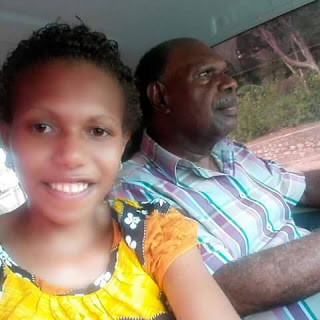Australia and PNG, Near neighbours, sometimes too near
AUSTRALIA’S prime minister, Julia Gillard, was quick to telephone her congratulations to her new counterpart in Papua New Guinea (PNG). She rang Peter O’Neill on August 3rd, just a day after he assumed office, reflecting the hope in Canberra that PNG’s incoming government might manage the affairs of state better than its predecessor—if it manages to survive an impending challenge in the Supreme Court. The chairman of the local branch of Transparency International, Lawrence Stephens, also applauded Mr O’Neill’s promise to fight corruption. Some in his cabinet have promising reputations, including the new minister for public service and sport, Bart Philemon, and Sir Mekere Morauta, himself the prime minister from 1999-2002, who played host to Mr O’Neill’s faction at his Toaguba Hill residence in Port Moresby last week as they prepared their parliamentary coup.
But some caution is necessary. PNG’s governments are notorious for corruption, and ever run the risk of turning the state into a fully-fledged kleptocracy. The downfall of Sir Michael Somare’s administration is widely attributed to popular discontent about its venal cabal of senior ministers. But neither is the opposition squeaky clean. Mr O’Neill himself was implicated in a corruption scandal involving the National Provident Fund in the early 1990s. Many of the others who broke ranks to join him have shady reputations, including the speaker of parliament, Jeffrey Nape, who for many years bent the rules to keep Mr Somare in office. In the hard-knocks school of Melanesian politics, reformists—like Mr Philemon and Mr Morauta—often have to broker deals with less reputable politicians if they are to stand any chance of forming a government.
For Australia, the only good thing that Mr Somare’s 2002-2011 government had to offer was stability, compared with its ever-changing predecessors in the 1980s and 1990s. The Australian government’s response to Mr O’Neill’s election stands in sharp contrast with its behaviour during the most recent prime ministerial election in PNG, back in August 2007. John Howard’s Liberal-led coalition held office in Canberra, and—in the midst of the PNG election campaign—the prime minister called for the release of a confidential report that recommended charges against Mr Somare for breaching his country’s constitution. Mr Somare was able to blame for Australia of interfering with PNG’s politics and he won the election handily. The opposition—with Mr Morauta and Mr Philemon playing pivotal roles—was routed, in part because it was labelled as a vehicle for the import of foreign ideas, including not only quasi-imperial manipulation but also “good governance” and anti-corruption policies.
Much has changed since 2007. The Labour government that assumed office in Australia later that year shifted the emphasis away from "good governance" and towards combating poverty and the UN's Millennium Development Goals. Tensions have calmed since then, but in ways that have done little to enhance Australia's official influence. During the past decade, a mineral resources boom driven by Chinese demand (like that in Australia) has made PNG less dependent on overseas aid. Australian officials who had been accustomed to having easy access to the highest levels of government found themselves left waiting in musty corridors for brief audiences with busy ministers. The huge ExxonMobil project in PNG's Southern Highlands has accentuated those trends.
Australia—once the colonial power—has spent close to A$15 billion (US$15 billion today) on aid to PNG since its independence in 1975, but living standards there have barely risen. Impoverished squatter settlements have mushroomed around Port Moresby and urban crime-rates have soared. In many rural areas, the state is simply absent; it provides neither schools nor clinics nor police officers.
The current resources boom offers some opportunities to turn this around. PNG has been growing at a breakneck speed, averaging 6.6% a year from 2006 to 2010, and seems likely to maintain speed. Moreover Australia plans to double its total international aid by 2015, and PNG will remain a major recipient. If government funds are frittered away on plush houses for PNG ministers in tropical northern Australia, or cached in secret bank accounts in Singapore, the risk is that rising popular hostility to state corruption will spark new episodes of urban disquiet, such as were witnessed across the country in May 2009. But if its revenues are spent judiciously, today's boom could build the skills and infrastructure for self-sustained growth. The natural resources themselves are present in abundance. Much now depends on the politics: in the months before the elections scheduled for mid-2012 but also, on the conduct of the government that follows.
-The Economist







Comments
Post a Comment
Please free to leave comments.